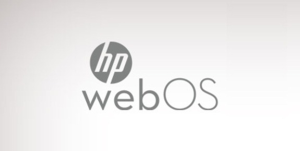Should Facebook buy webOS from HP?


Business Insider suggests that Facebook should just go ahead and buy webOS. Since HP is trying to reorganize itself, and webOS hasn't exactly taken off, Facebook would probably be able to pick it up for quite cheap. I see the potential advantages of such an acquisition, but I'm not sure it's the right move for Facebook to make.
The main argument appears to be quite simple: Facebook should buy webOS because the future is mobile. You know this, I know this, and Facebook certainly knows this as well (see the recently launched Facebook Messenger or the Facebook HTML5 platform rumors).
Facebook currently develops its apps and services for multiple platforms, including desktop browsers and mobile browsers, and mobile operating systems. I'm not so sure the company should take the plunge and just buy a mobile OS. In fact, I would argue Palo Alto is doing very well for itself developing apps for multiple platforms. The truth is that buying webOS wouldn't change very much for the company, but it would add a huge amount of workload and support requirements.
Almost every company Facebook has acquired so far has been for talent (Beluga is an exception) because the social networking giant has a lot on its plate already, most of which is expanding what it already offers to more devices and into more regions. If Facebook were to acquire webOS just for its developers, I could understand that (and I wouldn't be surprised if some HP employees do end up at Facebook).
As for the actual webOS software, Facebook doesn't need it. Why would Facebook want to support and update non-Facebook functionality? This includes first-party code (webOS features, the webOS browser, and all the apps that come with webOS) as well as support for third-party apps that run on webOS (including Facebook competitors like Twitter, LinkedIn, and maybe Google+ in the fututre). The costs easily outweigh the benefits.
There's a general rule in the technology industry: if you can manage to turn your product or service into a platform, do it. Operating systems like Windows, Android, and iOS are very successful platforms. I would argue, however, that while Facebook is not an operating system, it's still slowly becoming a ubiquitous platform in its own right.
Facebook apps already exist on facebook.com, they just don't really work well on mobile yet. I'm sure the company is working on fixing that. Facebook could one day end up building a mobile OS (maybe it already has prototypes), but it would do so from the ground-up. All third-party software developed for this operating system would be Facebook apps.
In summary, buying webOS simply doesn't make sense for Facebook. The company would spend more time and effort rewriting the operating system and maintaining useless parts of it than it would take to simply write its own Facebook OS.